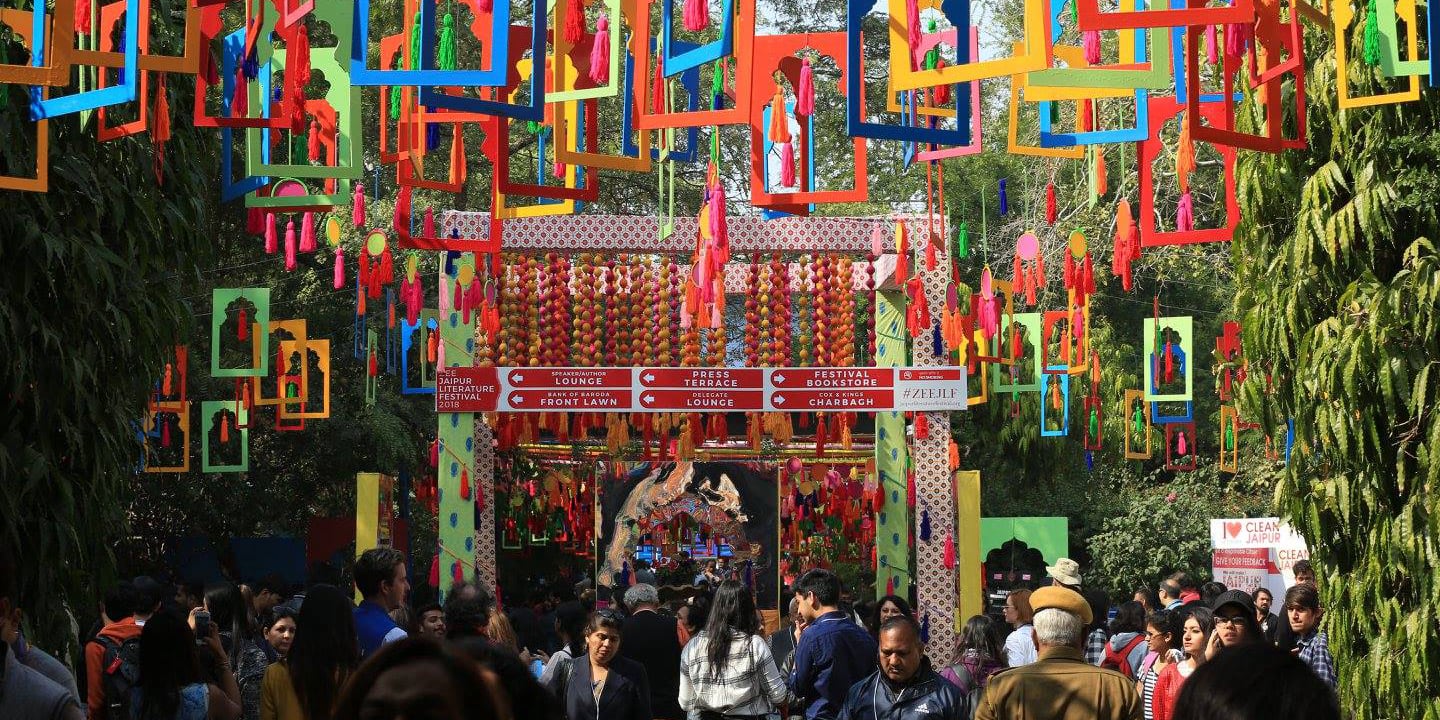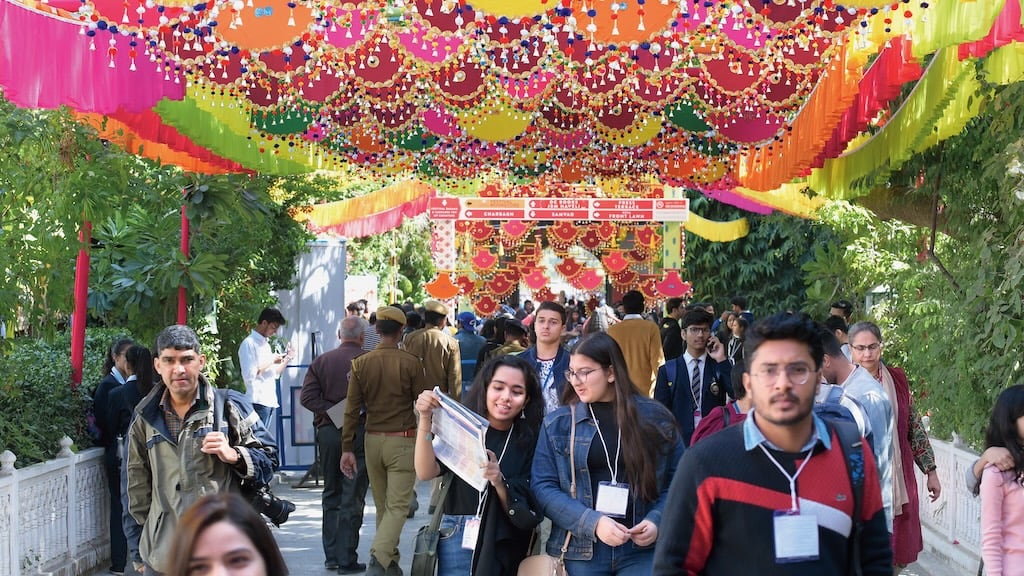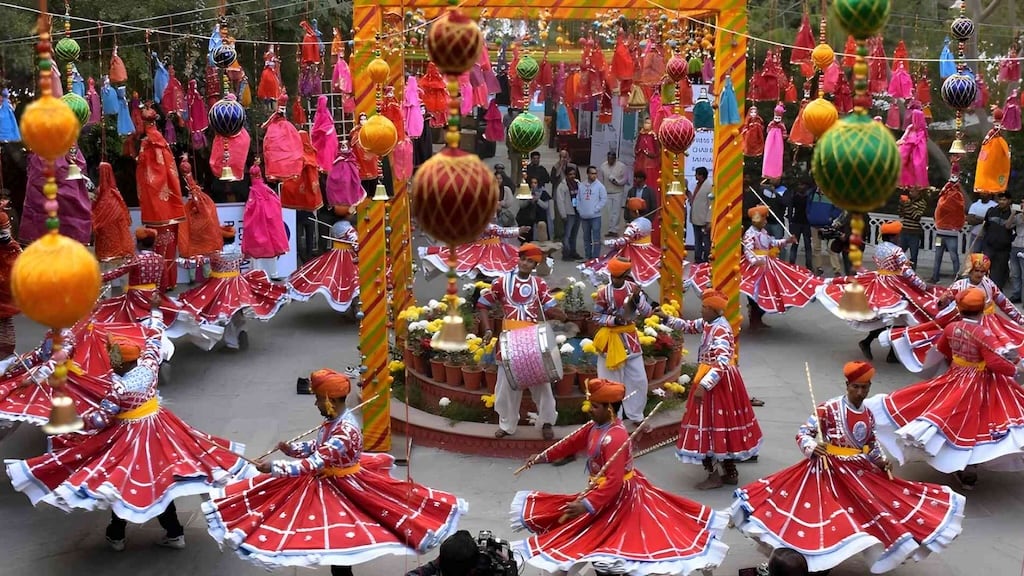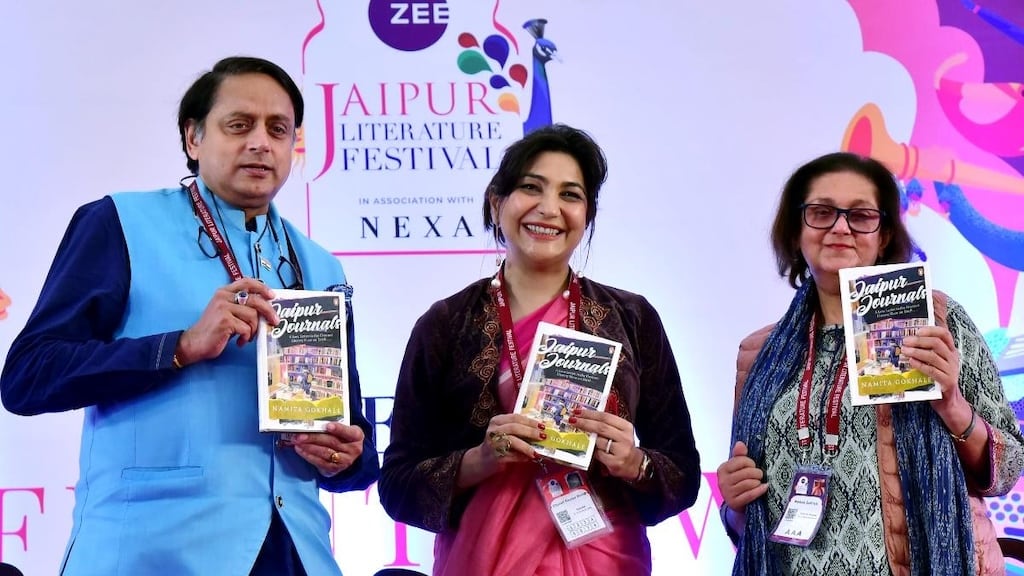Jaipur Literature Festival in India
The Jaipur Literature Festival in India—often introduced as “the greatest literary show on Earth” - transforms Jaipur into a high-spirited agora for readers and thinkers. Set at Hotel Clarks Amer on JLN Marg, the festival gathers novelists, historians, poets, journalists, academics, translators, publishing professionals, and curious first-time visitors for five days of conversation and discovery. Panels are brisk and provocative, coffee lines become mini-seminars, and the signing tables hum with readers swapping recommendations. Whether you're hunting for new voices or hoping to hear a literary icon unpack their craft, the atmosphere is welcoming and unpretentious.
Evenings bring performances at the Jaipur Music Stage, where folk traditions meet contemporary sound, and where many festivalgoers unwind after a full roster of debates and readings. For industry networking, Jaipur BookMark adds a dedicated forum for rights, translation, and emerging publishing trends, making the festival a rare blend of public celebration and professional marketplace.


Historical Background
The festival began modestly in the mid-2000s, first finding fame at the heritage Diggi Palace, a setting that helped establish its conversational, open-air identity. As audiences grew into the hundreds of thousands, the move to Hotel Clarks Amer delivered stronger logistics—expanded stages, better crowd flow, and upgraded production—while preserving the easy, inclusive feel that made the event beloved.
Over the years, the curatorial team has prioritized both international reach and local resonance: translations share space with original-language readings, and regional literatures from across India stand alongside global heavyweights. That balance made Jaipur Literature Festival in India a bellwether for how multilingual, multicultural festivals can thrive without losing intimacy.
Milestones abound: standing-room-only debates on freedom of expression, landmark conversations with Booker and Nobel laureates, and recurring spotlights on climate, technology, South Asian histories, and the craft of translation. Alumni often return with new work, so the program feels like a living archive—threads from earlier editions are picked up, reframed, and argued anew. The city's identity—pink façades, lively bazaars, and a deep tradition of hospitality—remains a constant backdrop, reminding visitors that culture in Jaipur is both everyday and celebratory.
Typical Activities
Top activities during Jaipur Literature Festival revolve around its vibrant session grid. Expect:
- Author conversations and debates that cut across genres—novels, poetry, narrative non-fiction, science writing, and public affairs.
- Book launches and signings with long queues for marquee names; plan your purchases early to avoid sell-outs.
- Workshops and craft talks focused on translation, editing, and writing practice; these are gold for early-career writers.
- Jaipur Music Stage evening gigs that introduce you to folk traditions and cross-genre collaborations.
- Jaipur BookMark meetings for editors, agents, translators, and rights managers—ideal for understanding South Asian markets.
Between sessions, the festival bazaar offers independent presses, regional-language imprints, and design-forward stalls. Food courts serve masala chai, kachoris, pakoras, and sweets, providing effortless breaks without leaving the grounds. If you want to blend sightseeing with the festival, slot a late-afternoon pause to catch the warm light on Hawa Mahal or a night-time sound-and-light show at Amer Fort.
Traditional Customs
Traditional customs in India are subtly woven through the festival experience. Opening notes may include Rajasthani folk performances; you'll see the colors of bandhani and leheriya textiles in scarves and turbans; and hospitality—mehmaan-nawazi—is evident in the smiles of volunteers guiding guests between venues.
Authors frequently read in original languages—Hindi, Urdu, Bangla, Malayalam, Tamil, Marathi, Punjabi—followed by translations, showcasing India's polyphonic literary culture. This commitment to linguistic range is a signature of Jaipur Literature Festival in India, and it's one reason the event remains so democratically beloved.
Etiquette is simple: keep phones on silent, avoid blocking aisles once a session begins, and step outside for spirited conversations so panels can flow. If someone offers you chai in a signing queue, that's an invitation to exchange reading lists. Dress is casual and climate-smart—layers for cool mornings, breathable fabrics for sunny afternoons.
What to Expect
Timing & weather. Mid-January is Jaipur's gentle winter. Mornings can dip to 8-12°C, afternoons hover around 20-24°C. Bring a light jacket for dawn sessions and evenings at the Music Stage.
Getting there. Hotel Clarks Amer sits on JLN Marg, roughly 10-15 minutes from Jaipur International Airport in light traffic and 30-45 minutes from Jaipur Junction railway station. Ride-hailing is widely available, and signage plus volunteers make navigation easy.
Access & passes. Registration tiers typically include General and Student day passes, with premium Friend of the Festival packages that add lounge access, priority seating, and curated dining. If you work in books, Jaipur BookMark offers a B2B track with meetings, showcases, and rights sessions.
Seating strategy. For blockbuster sessions, enter the hall for the panel before the one you want—this “one-ahead” tactic is the surest way to snag a seat. Carry a small notebook and water bottle; both come in handy more than you'd expect.
Food & breaks. On-site stalls keep you close to the action; if you need a quick change of scene, World Trade Park and Jawahar Circle are nearby for cafés and short walks. Cash is useful for small artisan purchases at the bazaar.
Stays. Festival week is peak demand. For easy commutes, choose hotels along JLN Marg or in Bani Park and the Walled City. Our curated listings via the booking link above help you compare locations, reviews, and transport times.
Accessibility. Paved paths, ramps, and elevators support step-free movement across most venues, and volunteer teams assist with seating and crowd flow. If you need priority access, check pass options that include reserved sections.
Blend with Jaipur. Add a sunrise visit to Jantar Mantar, a textiles walk through Johari and Bapu bazaars, and an evening thali along MI Road. You'll leave with both a heavier tote bag and a longer reading list.


Conclusion
Jaipur Literature Festival is a magnetic annual ritual where readers and writers meet as equals. From Top activities during Jaipur Literature Festival—panels, launches, and the Music Stage—to the convivial traditional customs in India you'll experience between sessions, it's a luminous way to start the year.
If you love books, conversation, and color, circle the dates and join the crowd; the Pink City has saved you a seat. Learn more on the official festival website.